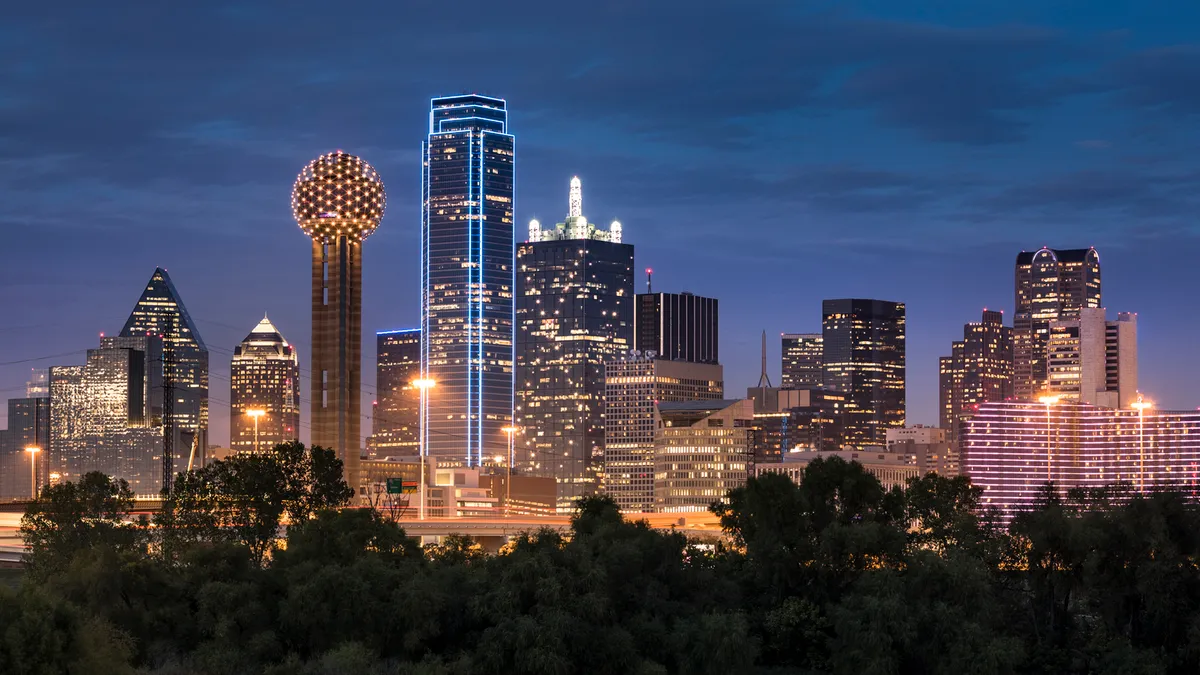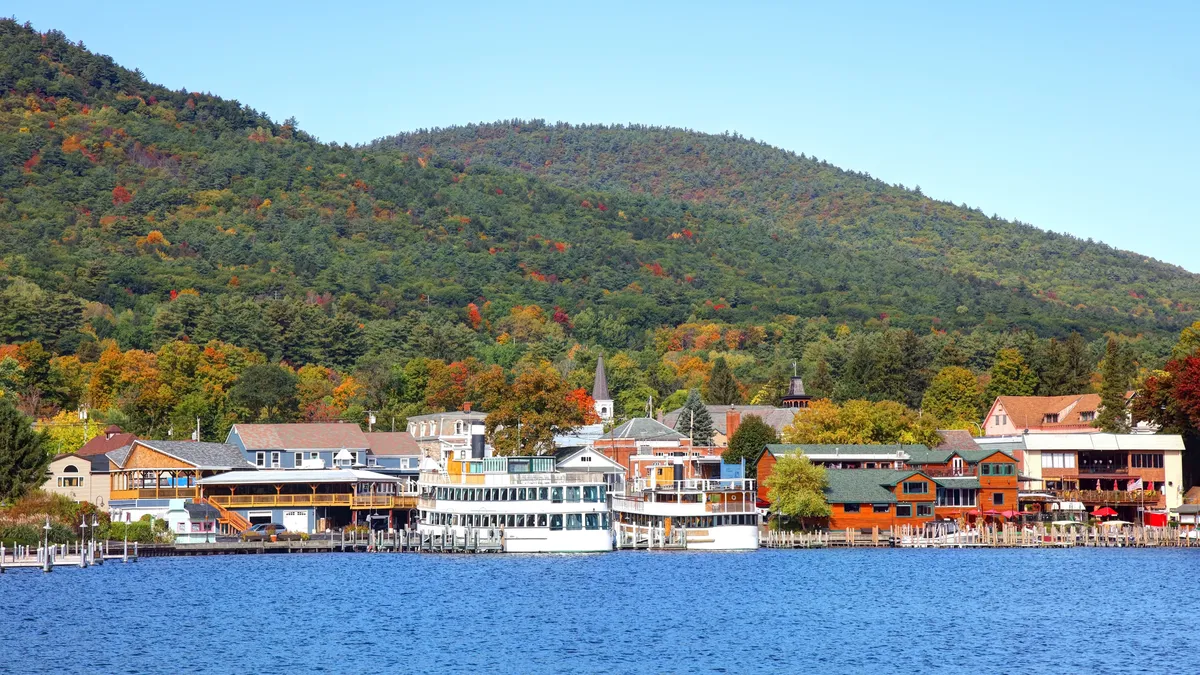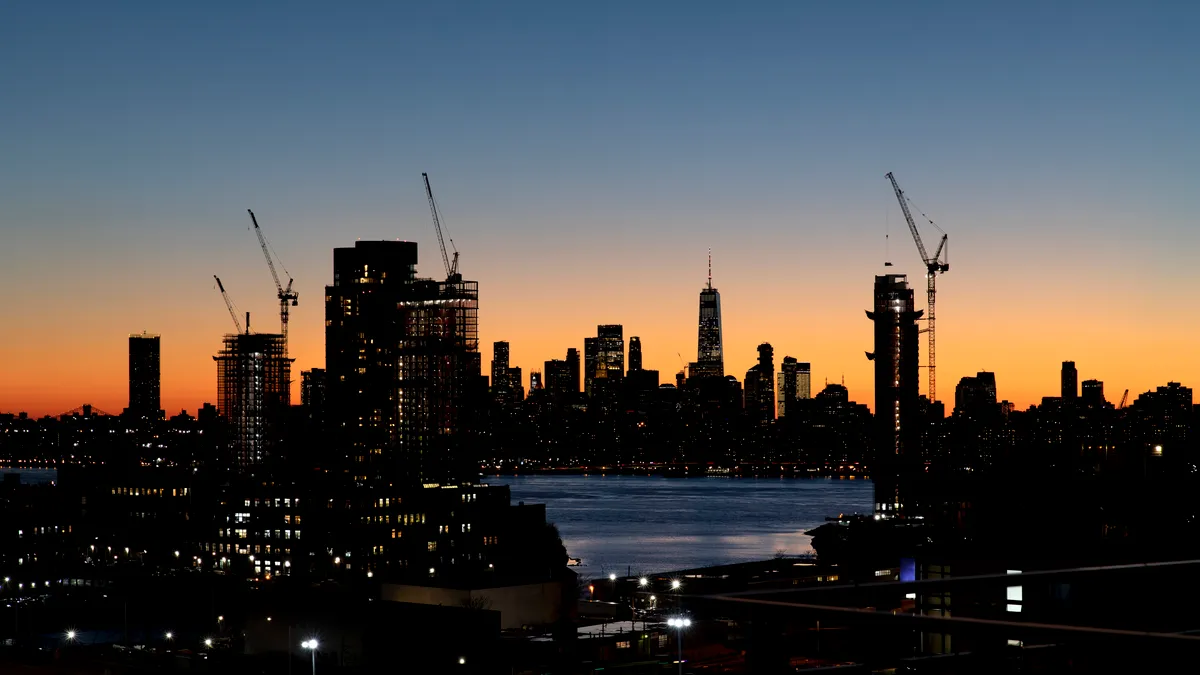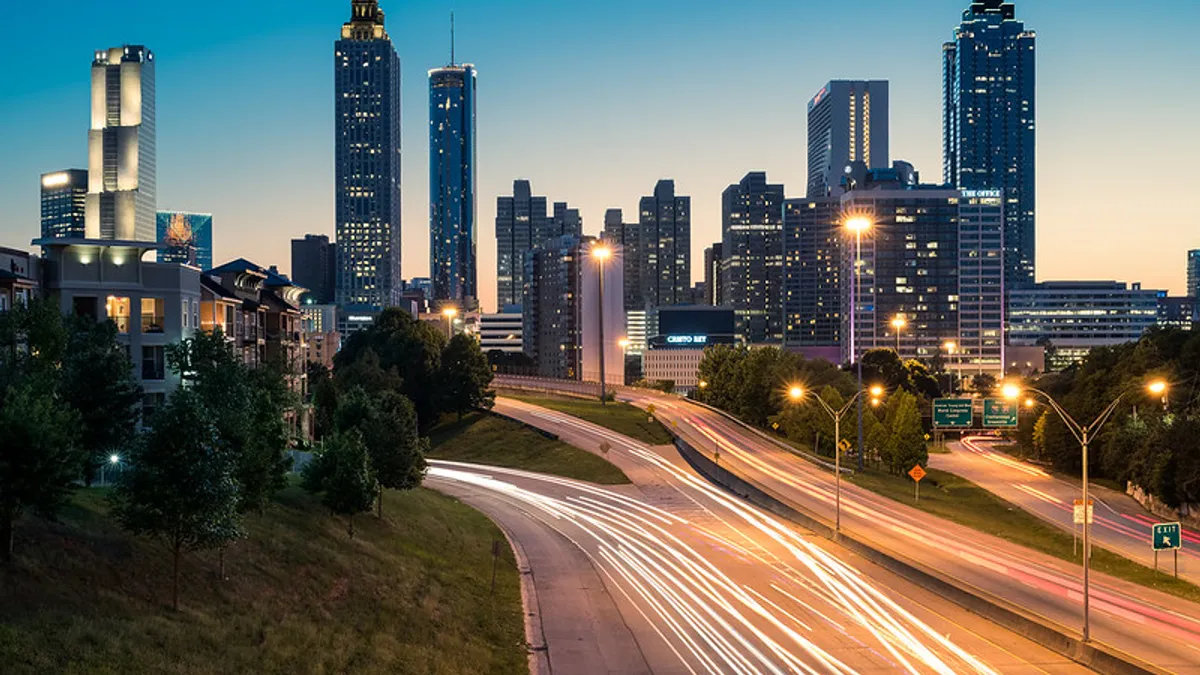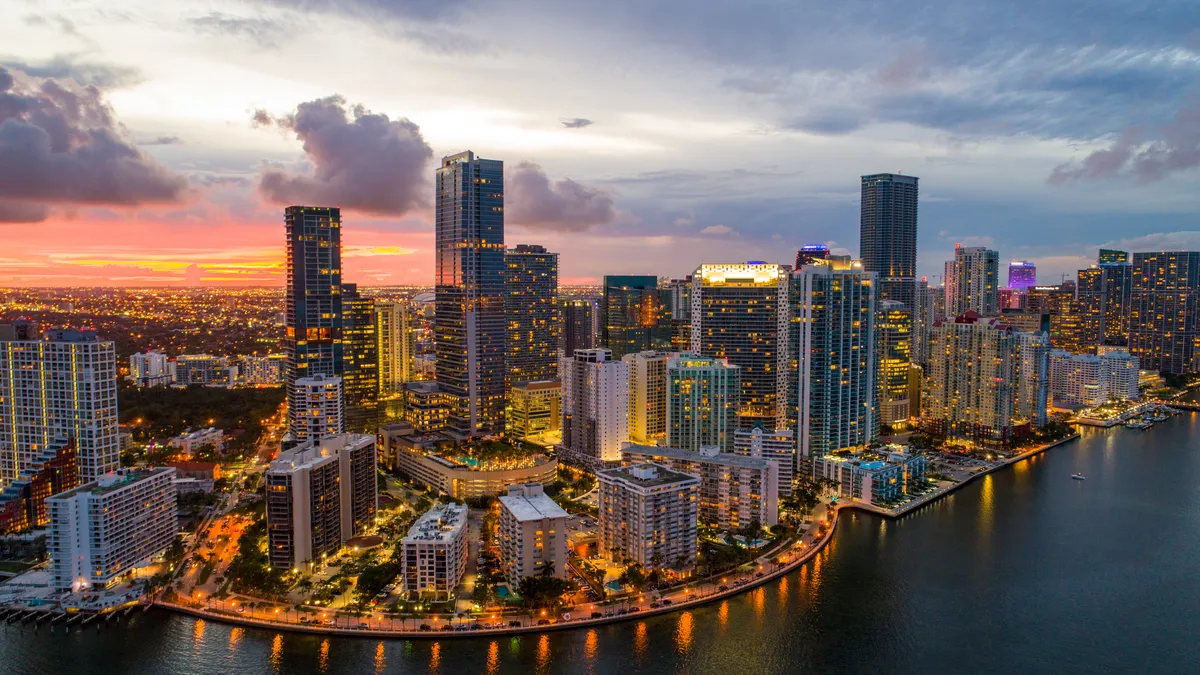The Dallas-Fort Worth metropolitan area has emerged as a top travel destination in recent years, with visitors coming for entertainment, sporting events and, more frequently, business.
An influx of tourism that both cities have seen in the years following the pandemic has resulted in increased hotel performance and strong investment and development activity.
Dallas particularly leads all other U.S. markets with the largest hotel construction pipeline as of the third quarter of this year, according to Lodging Econometrics, and several major companies have relocated to the city, bringing a resurgence of business guests.
Hospitality experts shared with Hotel Dive their insights on the “robust” market, and the growth they expect to see in 2024.
Growing demand
Both leisure and business travelers are visiting the Dallas-Fort Worth metro area in droves, according to the cities’ tourism bureaus. And this visitation is driving increased returns for hotels in the market.
Some 10.8 million travelers visited Fort Worth in 2022, with direct visitor spend increasing 25% year over year for the second consecutive year, according to Visit Fort Worth. In 2022, tourism’s economic impact on the city exceeded $3 billion for the first time.
As for Dallas, 25.7 million travelers visited the city in 2022, up 14% from the previous year, with tourism creating a $9.6 billion economic impact, Visit Dallas told Hotel Dive.
Hotel revenues in Dallas reached $1.12 billion by year-end 2022, according to Visit Dallas. And that number, the bureau’s President and CEO Craig Davis told Hotel Dive, is expected to hit a record-high of $1.25 billion by the end of 2023, surpassing 2019 levels by some $200 million.
Travelers visiting Dallas and staying overnight are coming for both leisure and business purposes — but it’s business travelers that are really fueling the visitor boom, according to Brian Nordahl, EVP and Texas region leader for the CBRE Hotels Institutional Group.
According to Nordahl, Dallas is experiencing a significant resurgence of business travel from several major corporate relocations to the city as well as heightened conference and events activity. This business travel, he said, is driving hotel stays in the city’s downtown and uptown neighborhoods.
“Dallas [is] one of the more robust markets in the country, frankly,” Nordahl said. In terms of growth, he noted, the market follows very close behind New York City, which “has been incredibly robust.”
“Dallas is becoming very much a center for the professional services world,” he added. “We've had so many corporate relocations … it's led to significant increases in demand.”
Between the start of 2021 and November 2023, nearly 20 companies relocated their corporate headquarters to Dallas, including AECOM and Frontier.
Hand in hand with increased business travel to Dallas is increased group travel, both Nordahl and Davis noted. Davis said hotel revenue growth in the city is in “large part driven by the recovery of meetings and events.”
“There's more group business coming to Dallas than there has been in the past,” Nordahl said. “A lot of people have found Dallas to be a great location to meet because of the airports, and obviously the hotel stock is very strong. So there's also been an interesting flip in that Dallas is becoming a pretty interesting place for weekend trips, and we've seen significant increases in weekend demand.”
Some travelers come to Dallas for business, but stay for leisure. The city’s entertainment offerings, coupled with its sports teams, restaurants and cultural events, makes Dallas a top destination for many travelers, Nordahl added.
Though occupancy in Dallas still lags behind 2019 levels, both RevPAR and ADR surpassed pre-pandemic rates in 2022. The same goes for Fort Worth, which The Wall Street Journal called America’s fastest-growing major city.
Fort Worth is similarly in the midst of a business travel boom, with significant development surrounding its convention center, Nordahl noted.
CBRE predicts performance growth will continue in the metro area in 2023 and 2024. Davis agrees: “All signs are pointing [to the fact] that we're going to surpass 2023,” he said.
Building bigger
Hotel development has skyrocketed in the Dallas-Fort Worth metro area in the last year, with Dallas leading all other U.S. markets for the largest hotel construction pipeline.
At the end of the third quarter of this year, Dallas had an all-time high pipeline of 189 projects, or 21,840 rooms, according to Lodging Econometrics.
The city led other markets with the most projects scheduled to start in the next 12 months and the greatest number of projects in the early planning stage. New York City, though, which has also seen significant growth in the last year, led Dallas, Phoenix and Atlanta with the greatest number of projects under construction as of Q3 2023.
Some recent Dallas hotel projects include the 267-room JW Marriott Dallas Arts District Hotel, which opened in the city’s downtown in the spring; the 134-room boutique Hôtel Swexan; a new-build, 240-room Four Seasons, set to open along Turtle Creek; a 260-room dual-brand AC Hotel by Marriott/Moxy, planned in Uptown; and an InterContinental Hotel under development within the existing Cityplace Tower.
Last month alone, Choice Hotels expanded its upscale Cambria brand to the market with two groundbreakings, and The Ritz-Carlton, Dallas completed a multimillion-dollar renovation to its 218 guest rooms and suites, lobby, public areas, corridors and the Ritz-Carlton Club Lounge.
“The hotel stock in Dallas has noticeably increased in terms of quality, and with these new additions, it's going to just continue to add to that reputation,” Nordahl said. “We've got beautiful hotels here in Dallas. There's just no doubt about it. These are just going to take it to another level.”
Fort Worth has also seen significant development activity, Nordahl noted, with a push toward luxury and lifestyle offerings. He pointed to The Crescent Hotel, Fort Worth as a property set to “make a huge splash,” as well as the luxury Bowie House, which will open Dec. 1.
Investment potential
On the investment front, Dallas is having what Nordahl calls an “opportunistic moment.”
“There's been a decent amount of transaction activity that's occurred in the market in the last 12 to 18 months, but it hasn't been robust,” Nordahl pointed out. “The reason for that is because there really isn't any distress in the Dallas market right now.”
Because of the current financial climate and rising interest rates, many investors are looking for value-add assets, or lower-volatility properties that offer significant improvement potential. But investors likely won’t find that in Dallas, Nordahl said, because “the market is too strong.”
Some major deals are still getting done, though. Florida-based commercial real estate firm Driftwood Capital acquired the 299-room Hilton Dallas/Plano Granite Park in June.
Buyers have also been actively acquiring midscale and upscale assets in the greater Dallas area and lower-cost economy properties in Fort Worth, according to a mid-year 2023 report by commercial real estate investment sales brokerage Marcus & Millichap.
The firm said several assets near Dallas’ Interstate 35 East and Interstate 635 South were frequently traded in the last year because of their access to the Dallas-Fort Worth International and Dallas Love Field airports.
Investment activity will likely continue along these thoroughfares, the report noted, as DFW Airport plans to spend more than $4 billion on expansions by 2026.



